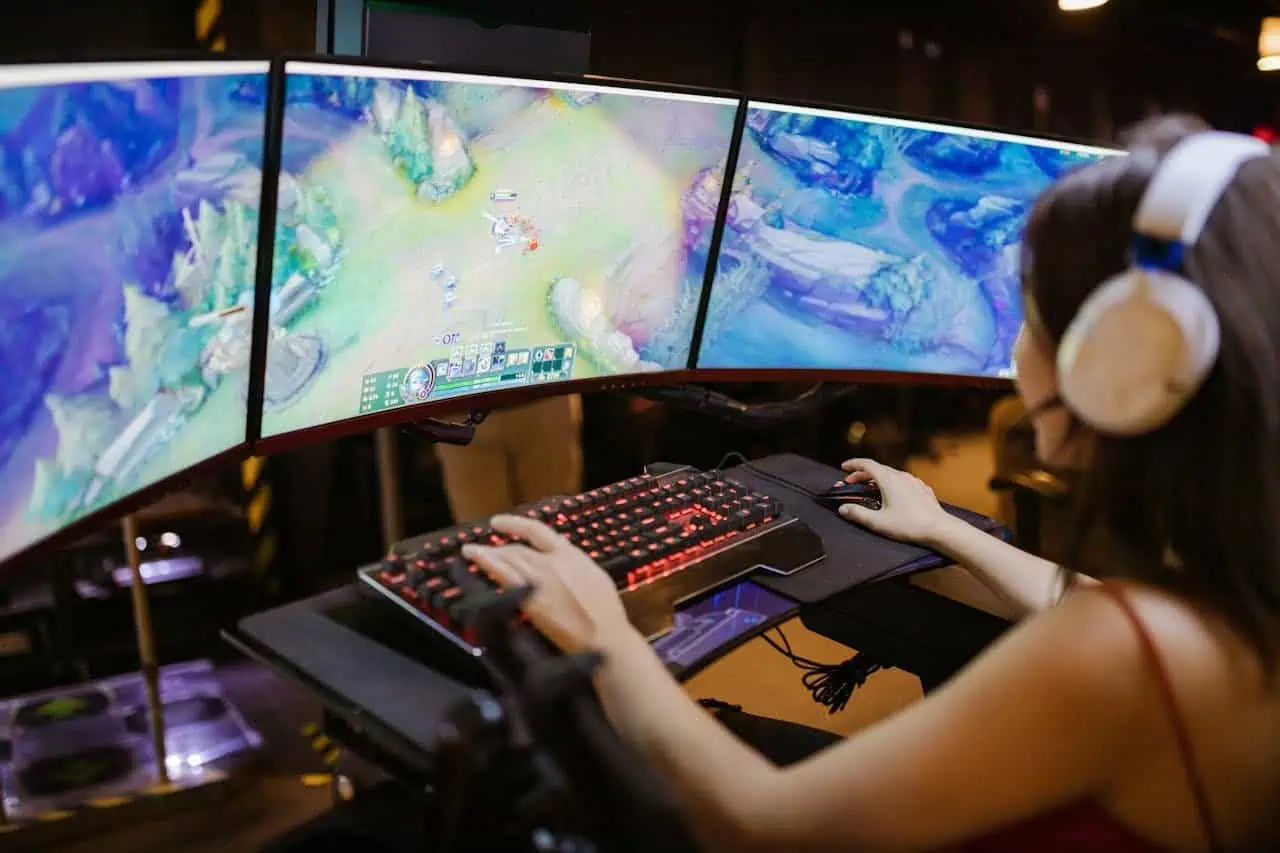Few sectors have exhibited a meteoric rise and enduring appeal quite like the gaming industry. What once started as a niche hobby has blossomed into a multi-billion-dollar behemoth, captivating audiences across the globe. The seismic shift towards digital consumption, coupled with technological advancements, has propelled gaming into the cultural mainstream.
What is the Gaming Industry?
The gaming industry encompasses game development, publishing, esports, streaming, hardware manufacturing, retail, events, media, gambling, and casinos. Game development involves creating video games through tasks like designing gameplay, writing narratives, programming, and testing. Publishers oversee distribution, marketing, and sales. Esports involves competitive gaming at a professional level, while streaming and content creation engages audiences with gameplay, commentary, and entertainment. Gaming hardware includes consoles, PCs, VR headsets, and peripherals. Retailers sell games and hardware, and events and conventions provide platforms for showcasing new products and networking. Game journalism and media cover news, reviews, and analysis. In addition, gambling at sites like those recommended by Safest Casino Sites UK offers games of chance and skill, attracting patrons seeking entertainment and the chance to win real-money prizes. These activities collectively contribute to the dynamic ecosystem of the gaming industry, catering to a diverse audience of gamers and gamblers worldwide.
The numbers speak volumes. According to market research firm Newzoo, the global gaming market is set to reach a value of $205.7 billion by 2026, with projections soaring higher each year. This exponential growth trajectory shows no signs of abating, fueled by an insatiable appetite for immersive experiences across diverse platforms, from consoles and PCs to mobile devices and virtual reality.
Careers in Gaming
Beneath the glossy veneer of blockbuster titles and esports spectacles lies a vibrant ecosystem teeming with talent and opportunity. The gaming industry includes a wide range of career opportunities, from developers and designers to marketers and analysts. Indeed, the proverbial table is set for individuals with a penchant for creativity, innovation, and a dash of pixelated panache.
For the aspiring game developer, proficiency in programming languages such as C++, Java, and Python are essential. Whether crafting intricate narratives or refining gameplay mechanics, mastery of these tools empowers creators to transform visions into virtual realities. Moreover, familiarity with game engines like Unity and Unreal Engine can prove invaluable in navigating the labyrinthine landscape of game development.
Beyond coding, artistic prowess finds ample expression in the gaming sphere. Graphic designers, animators, and concept artists breathe life into digital worlds, infusing them with color, texture, and emotion. A keen eye for detail, coupled with proficiency in industry-standard software such as Adobe Creative Suite, can open the door to careers such as character design and environmental storytelling.
Marketers also play a pivotal role in shaping the success of gaming ventures. Effective branding and promotion are indispensable weapons in the battle for consumer mindshare. From social media strategists to community managers, the ability to engage and mobilize audiences lies at the heart of marketing prowess in the gaming industry.
Top Tips for Getting Ahead in the Gaming Industry
- Embrace Lifelong Learning: The gaming landscape is a crucible of constant evolution, where innovation reigns supreme. Stay abreast of emerging technologies, industry trends, and best practices to remain competitive in an ever-changing environment. Online courses, workshops, and industry conferences offer invaluable opportunities for professional development and networking.
- Build a Stellar Portfolio: In a realm as visually driven as gaming, a compelling portfolio serves as your calling card to prospective employers. Showcase your skills and creativity through polished projects and passion projects, demonstrating your ability to deliver tangible results. Whether it’s a meticulously crafted game prototype or stunning concept art, let your portfolio speak volumes about your talents and aspirations.
- Cultivate a Collaborative Spirit: Success in the gaming industry hinges not just on individual brilliance but on effective collaboration and teamwork. Cultivate strong interpersonal skills, foster open communication, and embrace diverse perspectives to thrive in dynamic, cross-functional environments. Remember, great games are seldom created in isolation but through the collective synergy of talented individuals united by a shared vision.
In conclusion, the gaming industry is a fast-growing industry bringing together creativity, innovation, and opportunity. By harnessing the power of technological prowess, artistic ingenuity, and strategic acumen, aspiring professionals can chart a course toward a rewarding career in one of our most future-proof industries.

